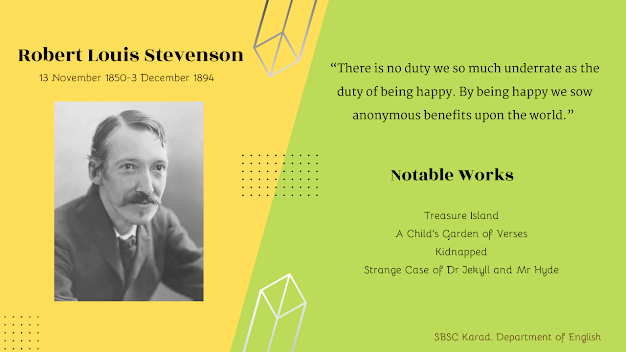Life and Poetry of John Keats
On February 23rd, 1821, John Keats, a well-known romantic poet, but then detested by his literary critics, died from tuberculosis.
“If poetry comes not as naturally as the leaves to a tree it had better not come at all.”
On February 23rd, 1821, exactly two hundred years ago, John Keats, a well-known romantic poet, but then detested by his literary critics, died from tuberculosis. This 23rd February marks his death bi-centenary. During his lifetime, the critics did not appreciate his work, but the next century drew inspiration from his poetry and letters. The early Indian writing in English too was greatly inspired by his work. Poets like Henry Derozio and Toru Dutta among others could be the best examples.
His style of writing was distinctively his own. It hardly resembled any of his predecessors, but it had greatly influenced the Victorian poets. Lord Alfred Tennyson was the most notable poet who was greatly influenced by Keats.
In his writings, all the qualities of the old are smartly, decoratively restrained and poised which ultimately resulted in the most striking and lovely of all English poetic styles. He chooses different topics than the fellow poets of his time.
It can fairly be said that ‘Ode’ was his favorite poetic form. Ode is like a lyric, but a longer one, of Greek origin, a serious and dignified composition. Ode is often in the form of an address. His notable odes are ‘Ode on Melancholy’, ‘Ode to a Nightingale’, ‘Ode to Psyche’ and ‘Ode on a Grecian Urn.’ The subject matters of these poems are sublime in tone and style. The themes and treatment are dignified. John Keats was serious in the selection of his themes and was at the peak of his poetic imagination.
His subtle view about the imagination must be seen in the light of the Romantic age that he lived in. He writes, “My Imagination is a Monastery and I am its Monk.” Unlike Coleridge, the imagination was a kind of fancy to him.
The phrase ‘rich to die’ can linger upon our lips. In an essay, FR Leavis stresses the significance of the phrase. Leavis opines, “it moves outwards and upwards towards life as strongly as it moves downwards towards extinction.” Allow me to quote the complete ‘run-on-line’.
“Darkling I listen; and, for many a time
I have been half in love with easeful Death,
Call’d him soft names in many a mused rhyme,
To take into the air my quiet breath;
Now more than ever seems it rich to die,
To cease upon the midnight with no pain,
While thou art pouring forth thy soul abroad
In such an ecstasy!”
The word ‘death’ is, as a name, capitalised and a little more personified. The way he addresses ‘death’ is quite interesting. These poetic words, if we minutely look at, such as ‘easeful death’, ‘quiet breath’, ‘rich to die’ and ‘to cease...with no pain’ highlight his varied interplay of emotions. The death, many fears, can be the greatest pain, but he himself was ‘half’ in love with easeful death. The other words also mark his desire for death ‘with no pain.’ As many would wish to die in sleep.
John Keats was intensely fond of death. In other words, he was immensely fascinated by death or the mortal things around him. In his poetic work and letters, one can easily find that for him, death was a soulful entity for which his heart fell. In ‘Ode to a Nightingale’, his love for the deadly escape from life can be seen. The escape from the mortal sins and earthly sorrows.
The poem ‘On Death’ beautifully presents an interplay between life and death. The interrogative opening ‘can death be sleep, when life is but dream…’ builds a woeful scene. And one might wonder ‘the greatest pain is to die,’ but the next few lines set a different tone.
The word ‘Quarantine’ is quite famous these days. At the suggestion of doctors, in 1821, John Keats moved to Italy. Sadly, he was also quarantined in Naples for 10 days. This quarantine defeated the motive he moved to Italy for.
His epitaph bitterly reads “here lies one whose name was writ in Water”. He had asked his friends to have these words engraved on his grave. Today, this epitaph might sound beautiful. Unfortunately, of Keats, the epitaph then manifested his sorrow. In his lifetime, the literary critics censured him badly. It is that bitterness he wanted it to be engraved. Nothing can be written in water, but Keats’ name! His poetic glory is eternal. His poetry stands still as ‘Beauty is truth, truth beauty’.
(Written by Snehal Warekar, previously published in Indie Journal)















